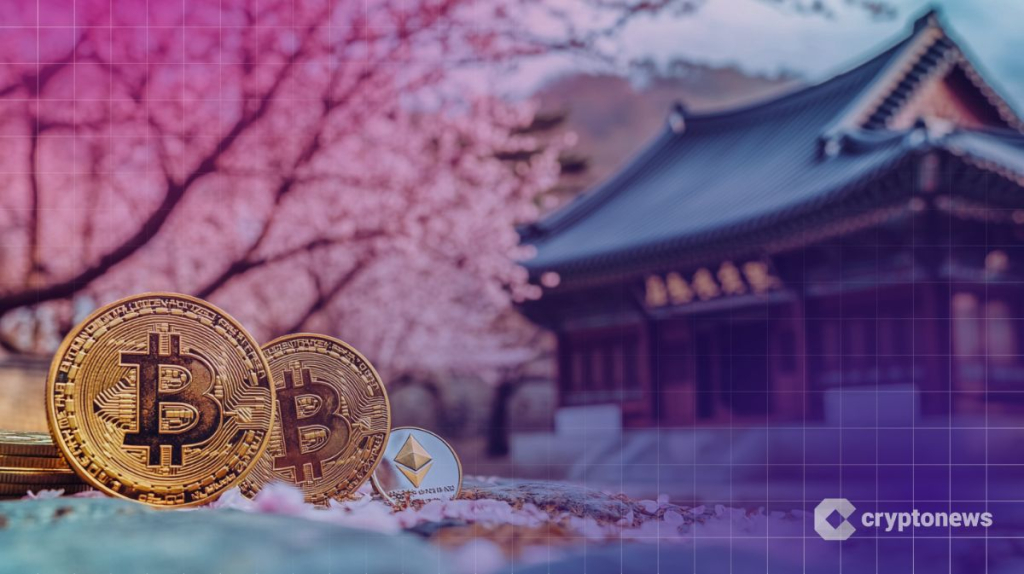The Bank of Korea (BOK) has revealed that South Koreans are currently holding approximately $73.4 billion in cryptocurrency assets on local exchanges. This comes amid rising interest in digital currencies across the nation.
According to a report by Busan Ilbo, the total market cap of cryptocurrency stored in domestic wallets reached the significant milestone of over 100 trillion won (around $70.5 billion) for the first time in December 2024, based on BOK data.
Koreans Investing Billions in Crypto
The latest findings were included in the BOK’s payment settlement report, marking this month as the highest total recorded since the bank began tracking crypto-related statistics.
Experts have suggested that the victory of Donald Trump in the November 2024 U.S. presidential election ignited a surge in crypto investments in South Korea.
In December, the value of crypto holdings increased by 987 million won compared to the previous month. In late October, ahead of the U.S. election, South Koreans had only HODLed 58 trillion won (approximately $41 billion).
This notable increase of 2.2 times from October to December 2024 has been attributed mainly to Trump’s pledges related to cryptocurrency, as reported.
Additionally, trading volumes saw an uptick following the elections, with the average daily transaction volume soaring to 17.2 trillion won (around $12.1 billion) during the final days of 2024, five times higher than October’s figures.
Trading metrics from the leading crypto exchange in South Korea, Upbit, reflect the heightened activity over the past year. (Source: CoinGecko)
Beyond Trump: Other Growth Factors Identified
Despite the influence of the U.S. election, the BOK indicated that certain domestic factors also played a significant role in fostering the growth of the local crypto market by the end of 2024.
The introduction of the Virtual Asset User Protection Act in July included essential regulations aimed at protecting crypto users and addressing unfair trading practices.
While lawmakers aimed to discuss further improvements to this act, progress was largely stalled following political turmoil related to President Yoon Suk-yeol’s controversial martial law proposal on December 3.
However, both regulators and legislators have committed to revisiting crypto reforms following the presidential elections set for June, with the BOK anticipating advancements in this area before the year concludes.
Industry insiders have voiced their frustration over South Korean firms still being unable to launch their own cryptoassets or stablecoins domestically. Moreover, regulations currently restrict businesses from utilizing their balance sheets for Bitcoin (BTC) and other tokens, although improvements are expected soon.
Critics argue that these delays have hindered South Korea’s blockchain industry, allowing competitors in the U.S. and Japan to surpass its growth.
South Korea and the US are set to begin trade negotiations this week, as the Asian export giant seeks to convince the Trump administration to alleviate the burdensome tariffs affecting its economy. https://t.co/Tl9M5L4yyg
— Bloomberg (@business) April 21, 2025
Anticipated Stablecoin Regulations
The BOK’s report mentioned that regulatory hurdles concerning stablecoins are expected to be eased in the near future.
The bank noted that a comprehensive regulatory framework addressing stablecoins is likely forthcoming, while also expressing concerns over their proliferation:
“Unlike conventional virtual assets, stablecoins possess the unique characteristics of a payment method. Should they be widely adopted and used as a substitute for legal tender, there could be adverse effects on central bank policy implementation, including monetary policy, financial stability, and payment systems. A distinct regulatory framework is necessary.”
The BOK pledged to actively engage in forthcoming discussions surrounding stablecoin legislation.
It aims to collaborate with the Virtual Asset Committee, a body established to guide South Korea’s crypto policy, providing insights on stablecoin regulations from the central bank’s viewpoint.
The article originally published on Finance Newso highlights the ongoing developments in South Korea’s rapidly evolving crypto landscape.


























